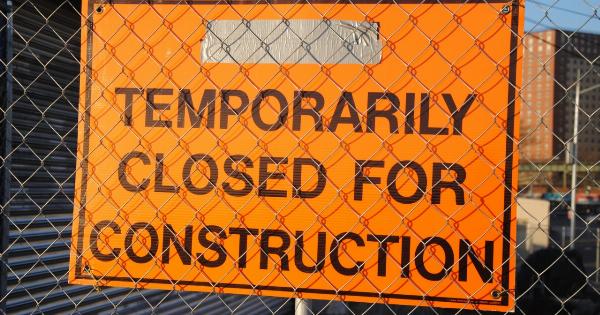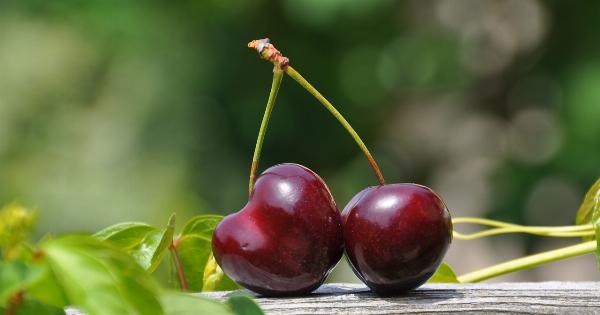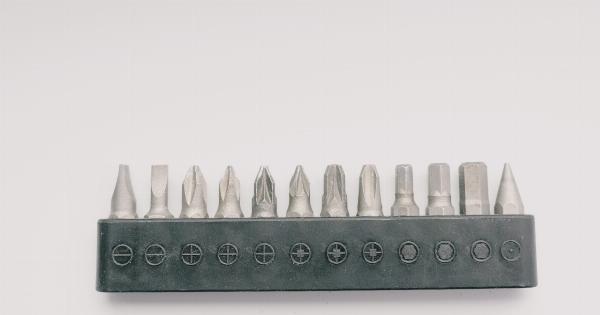Iron is an essential mineral that plays a vital role in various bodily functions. It is responsible for transporting oxygen throughout the body and is a crucial component of hemoglobin, the protein in red blood cells that carries oxygen to the tissues.
Iron deficiency can lead to anemia, which can cause fatigue, weakness, and a compromised immune system. While iron supplements are commonly used to boost iron levels, there are also numerous natural ways to increase iron absorption and maintain optimal iron levels.
1. Consume Iron-Rich Foods
The first step in naturally boosting iron levels is to include more iron-rich foods in your diet. Some excellent dietary sources of iron are:.
- Lean meats such as beef, chicken, and turkey.
- Seafood, especially shellfish like clams, mussels, and oysters.
- Legumes, including beans, lentils, and chickpeas.
- Iron-fortified cereals and bread.
- Leafy green vegetables like spinach, kale, and broccoli.
- Nuts and seeds, particularly pumpkin seeds, sesame seeds, and almonds.
By incorporating these iron-rich foods into your meals, you can gradually increase your iron intake and naturally replenish your iron stores.
2. Enhance Iron Absorption with Vitamin C
Vitamin C plays a crucial role in enhancing iron absorption. Including foods rich in vitamin C can significantly boost your body’s ability to absorb iron from plant-based sources. Some excellent sources of vitamin C include:.
- Citrus fruits like oranges, lemons, and grapefruits.
- Strawberries, kiwis, and guavas.
- Tomatoes and tomato-based products.
- Peppers, particularly red and yellow peppers.
By pairing iron-rich foods with vitamin C-rich foods, you can maximize iron absorption and optimize your iron levels naturally.
3. Avoid Inhibitors of Iron Absorption
While some foods can enhance iron absorption, others can hinder it. It is essential to be mindful of foods and substances that inhibit iron absorption, especially when consuming iron-rich foods. Some common inhibitors of iron absorption include:.
- Tea and coffee
- Calcium-rich foods and supplements
- Phytates found in whole grains and legumes
- Oxalates present in spinach, beet greens, and rhubarb
Although you don’t need to avoid these completely, it is advisable to consume them separately from iron-rich foods to maximize iron absorption.
For example, if you enjoy a cup of tea, try to wait an hour before or after consuming an iron-rich meal.
4. Cooking in Cast Iron Cookware
Using cast iron cookware can also be an effective way to boost your iron levels naturally. Cooking acidic foods or liquids in cast iron pans can significantly increase the iron content of your meals.
It is especially beneficial for individuals with iron deficiency or anemia.
5. Be Mindful of Iron Antagonists
Iron antagonists are substances that interfere with iron absorption or increase iron excretion. Being aware of these antagonists can help you maintain optimal iron levels naturally. Some common iron antagonists include:.
- Phosphates found in processed foods and sodas
- Excessive consumption of alcohol
- Antacids and proton pump inhibitors
Minimizing the consumption of iron antagonists can aid in maintaining healthy iron levels in your body.
6. Soaking and Sprouting Grains and Legumes
Soaking and sprouting grains and legumes can help reduce the phytate content, making iron absorption more effective. Phytates are compounds found in these foods that can hinder iron absorption.
Soaking and sprouting these foods activate enzymes that break down phytates, enhancing iron availability for absorption.
7. Consume Fermented Foods
Fermented foods like yogurt, sauerkraut, and kimchi can improve iron absorption due to their high probiotic content. Probiotics help enhance the gut microbiome, which plays a vital role in iron metabolism.
Including fermented foods in your diet can indirectly promote iron absorption and utilization in the body.
8. Avoid Excessive Calcium and Zinc Supplements
While calcium and zinc are essential minerals, excessive supplementation can interfere with iron absorption.
It is crucial to ensure that you are not taking excessively high doses of calcium or zinc supplements, as they may hinder iron absorption and contribute to iron deficiency. Consult with a healthcare professional to determine the appropriate dosage and timing for these supplements.
9. Increase Vitamin A and B12 Intake
Vitamin A and vitamin B12 play vital roles in maintaining healthy iron levels. Foods rich in vitamin A include carrots, sweet potatoes, and leafy greens. Animal products like meat, fish, and dairy are excellent sources of vitamin B12.
By including these foods in your diet, you can support iron absorption and overall iron balance in your body.
10. Regularly Monitor Iron Levels
Lastly, it is essential to regularly monitor your iron levels through blood tests. This will help you determine whether the natural methods you are using to boost iron levels are effective.
Consulting with a healthcare professional can provide valuable insights and guidance in maintaining optimal iron levels.




























